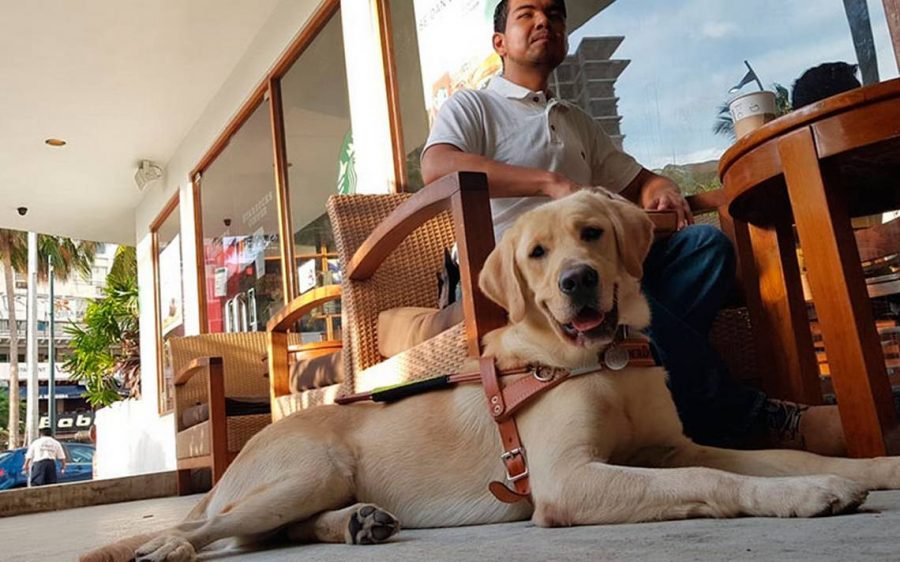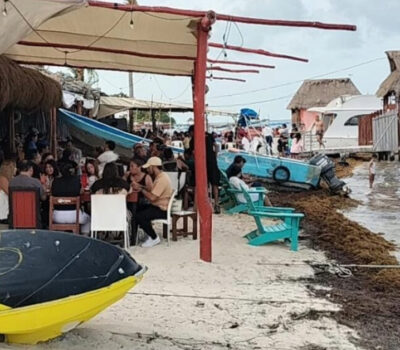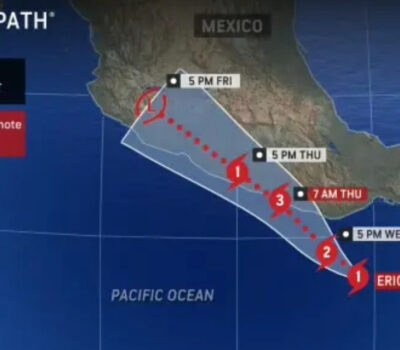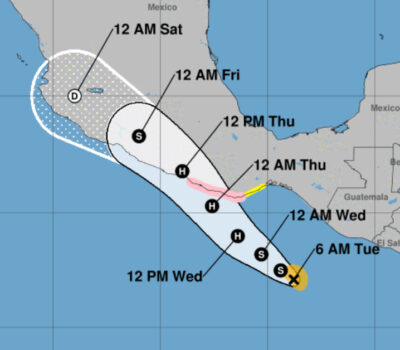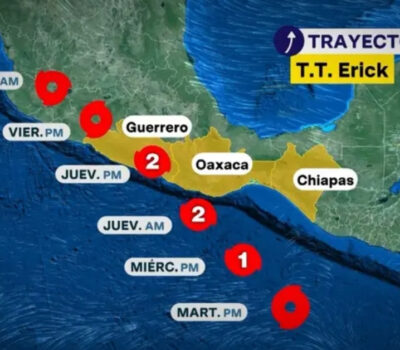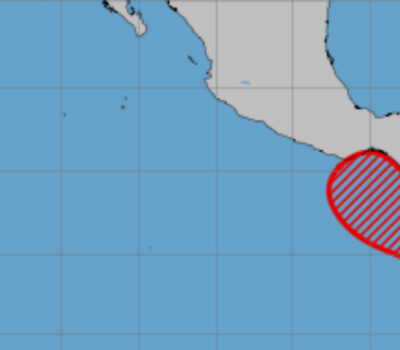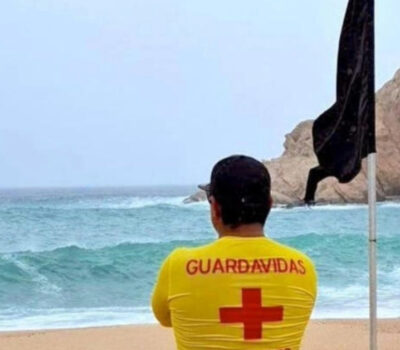Miguel Ángel Millán, a 30-year-old blind man, and his guide dog Ruger, seek to end the discrimination they have suffered and lay the foundations to raise awareness about the use of guide dogs in Acapulco establishments.
Miguel Angel left the cane behind and now chooses to be accompanied by Ruger, a 20-month old golden retriever, to go for a walk in the streets of the port and visit shopping centers.
However, in their walks, they have suffered discrimination and ignorance of some people who do not know about guide dogs, and who believe, wrongly, that these dogs create a danger for other shoppers.
Miguel Ángel lost his sight at age 12, after he had a detached retina first in the right eye and then in the left one.
He described that after he underwent several surgeries without success because he had damage to the optic nerve, so doctors have told him that at the moment there is no treatment to recover the sight, not even with a transplant.
The loss of sight has not prevented him from living his normal life because he has a degree in educational intervention, has two graduate studies, has also been a teacher, educational auditor, social promoter and opened an educational center to rehabilitate visually impaired children.
He considered that before Ruger came to his life, he was at a point of stability, since he had become accustomed to walking with the cane, but now he realizes the benefits of having a guide dog.
He said that having the dog by his side, has allowed him to improve in his movement, socialization and in his physical and emotional rehabilitation, he also assured that he was awakened by a sensitivity that he did not have before.
Recalling the way Ruger came into his life, Miguel Angel is filled with joy and remembers that one day by accident, he began to listen to some videos on YouTube about the use of guide dogs from Los Angeles, California in the United States, and he started to investigate through an international group of blind people about these dogs.
Via the Internet, he contacted the Leader Dogs For The Blind Association, which is located in Rochester Hills, Michigan in the United States, and after sending what was requested, he became a candidate of a guide dog in two months, so he traveled to the United States to meet Ruger, who after 20 days of training arrived with him to Acapulco.
Along with Ruger, today Miguel Ángel has the challenge of raising awareness in Acapulco society regarding the use of the guide dog and encouraging that the pet is not a threat to the people around him.
“This is a challenge so that in the future people who use guide dogs do not present as many difficulties as I now present them,” he said.
He explained that the obstacles he had previously experienced with a cane were infrastructure and physicists, since he found himself with special accesses blocked and sidewalks invaded by business tables, and when he did not know that he was in front of them, he stumbled.
However, now with Ruger, Miguel Ángel has found social impediments, which he said, are the ones that hurt the most because of the indifference and ignorance of some people of not knowing what a guide dog is.
He said that when he went out into the streets of Acapulco and experienced actions such as prohibitions to enter a store, a restaurant or a shopping center with his guide dog, he had the impression that there had not been another visually impaired person with a guide dog in Acapulco.
“Of the blind community that I know, none has a guide dog and it seems to me that I am the first user of a guide dog and it is my job to open a gap to other people so that in the future there will be more awareness and security for a guide dog user,” he said.
He said that when he receives a refusal to enter commercial places to make a purchase, he enforces his right as a consumer and as a citizen.
In this regard, he asserted that Article 58 of the Federal Consumer Protection Agency (Profeco) protects him every time he goes to a business and they deny him the service, an action that could result in a sanction for the establishment.
“The supplier of goods, products or services can not deny or apply conditions to the consumer for reasons of gender, nationality, ethnicity, sexual preference, religious, disability, or any other particularity.
“(Providers of goods and services) Neither may apply or collect extraordinary or compensatory fees to persons with disabilities for their medical, orthopedic, technological, educational or sports equipment necessary for their personal use, including the guide dog in the case of the blind “, Dictates the article.
However, Miguel Angel said that he only seeks to raise awareness of the use of the guide dog and that people know that these service dogs give visually impaired people, independence and safety when walking, so they should not prevent them from going to the establishments.
Elsa Salgado, animal protector of the Patitas Felices Association, said that these dogs are very well trained to help a blind person and should not cause discomfort, they will not be aggressive or use the bathroom indoors.
Miguel Angel mentioned that it is regrettable that police who provide security in shopping centers and restaurant employees as waiters or the same managers, are not trained to identify guide dogs and all the time they are discriminating against people.
He proposed that it is up to him as a person with a visual disability to open the doors to be recognized as fully functional men and women who are capable of doing many things and who have to rely on certain technological tools as well as guide dogs, to be able to move.
He welcomed the fact that the Acabús transport service was committed to making adjustments to provide a better service to people who have a disability.
The president of the State Commission for the Defense of Human Rights in Guerrero (Coddehum), Ramón Navarrete Magdaleno, said he will seek to train the staff of shopping centers and restaurants to know the rights of people with disabilities.
Miguel Ángel Millán, a 30-year-old blind man, and his guide dog Ruger, seek to end the discrimination they have suffered and lay . . .

